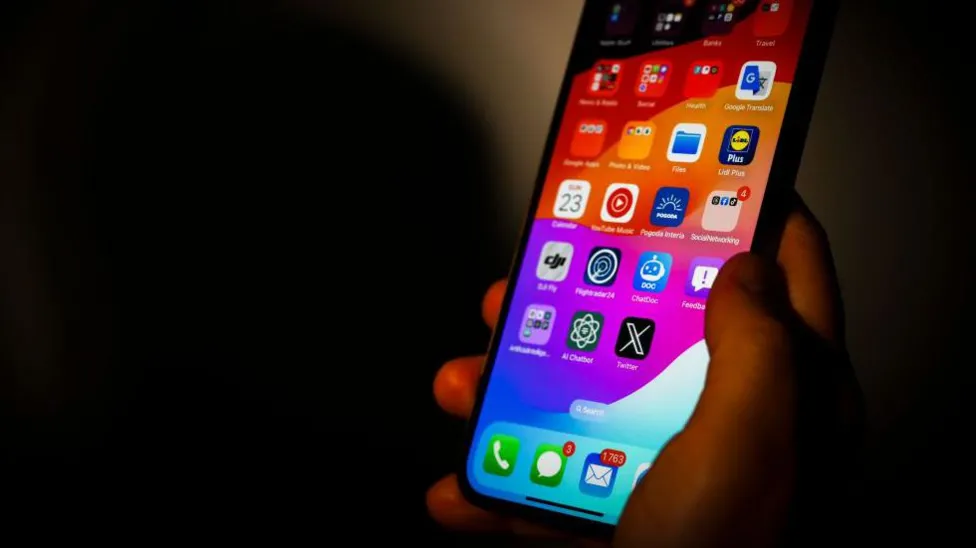Our mobile phones are getting a whole lot smarter, but what about the telecoms networks they run on?
Last week, Apple became the latest mobile phone firm to announce that it will be adding artificial intelligence (AI) to its handsets’ operating system.
Called Apple Intelligence, and also due to be incorporated into the phones’ Siri chatbot, it aims to make them easier and quicker to use. And turn Siri into even more of a personal assistant.
It follows after Samsung’s Galaxy AI, and Google’s Gemini AI for its own Pixel handsets.
This increased of use AI means phones will be doing a lot more computing, and that means they’ll produce and use a lot more data. This is going to put more strain on the mobile phone networks, such as the UK’s O2, EE, Vodafone and Three.
To help them cope, telecoms firms such as these are also increasingly introducing AI, says Ian Fogg, director of network innovation at research consultancy CCS Insight.
“Network operators are using AI to manage the radio frequencies dynamically, to provide an optimum level of service. And to manage cell towers, for example, so they use less energy at times of lower demand.”
Such increased use of AI to look after mobile phone networks is now very much global. In South Korea, Korea Telecom is now able to localise and fix faults within a minute, thanks to AI-enabled network monitoring, says Alex Sinclair, chief technology officer of the GSMA, the body representing global mobile operators.
Meanwhile, AT&T in the US is using predictive, AI algorithms schooled on trillions of previous network alerts to warn it when things are about to go wrong.
Read the entire article here: https://www.bbc.co.uk/news/articles/c6pp1nvw5zwo




